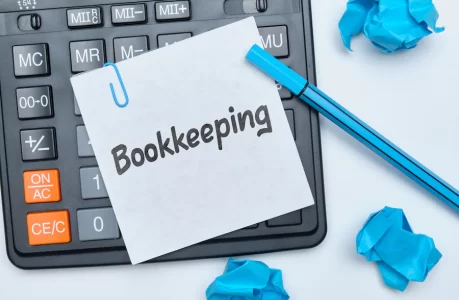What To Know About Debt Sold To Collection Agencies?

Debt collection agencies play a significant role in the financial ecosystem, serving as intermediaries between creditors and debtors.
When individuals or businesses fall behind on their financial obligations, creditors often turn to collection agencies to recover the outstanding amounts.
Understanding the basics of debt sold to collection agencies is crucial for debtors and creditors.
In this article, we will explore key aspects of this process, including how debt is sold to collection agencies, the rights of debtors, and the impact on credit scores.
What Is A Debt Collection Agency?
A debt collection agency, often referred to simply as a collection agency, is a company or organization that specializes in recovering unpaid debts on behalf of creditors.
These unpaid debts include various financial obligations such as credit card debts, medical bills, personal loans, and utility bills.
The primary purpose of a debt collection agency is to help creditors recover the money owed to them by pursuing debtors who have fallen behind on their payments.
Here are some key characteristics and functions of international debt collection agencies:
- Third-Party Mediators: Debt collection agencies are typically third-party entities hired by the original creditor, such as a credit card company or a medical provider, to collect outstanding debts. They operate independently from the creditor.
- Contacting Debtors: Collection agencies contact debtors through various means, including phone calls, letters, and sometimes even email or text messages. They aim to persuade debtors to repay their debts.
- Negotiation and Payment Plans: Collection agencies often have the authority to negotiate with debtors to establish repayment plans, settle debts for less than the full amount, or agree to more favorable terms. This flexibility can make it easier for debtors to resolve their debts.
- Credit Reporting: Debt collection agencies may report delinquent accounts to credit bureaus, which can negatively impact the debtor’s credit score and credit history.
- Legal Actions: In cases where negotiations fail, or debts remain unpaid, debt collection agencies may pursue legal actions, such as filing lawsuits, to obtain court judgments that allow them to garnish wages or seize assets.
- Compliance with Regulations: Debt collection agencies are subject to various federal and state regulations, including the Fair Debt Collection Practices Act (FDCPA) in the United States. These regulations govern how collection agencies interact with debtors and protect debtors’ rights.
It’s important to note that while the primary goal of debt collection agencies is to recover outstanding debts, they must adhere to legal and ethical practices when doing so.
Debtors have rights and are protected by laws prohibiting harassment, deception, or unfair practices during the debt collection process.
Dealing with commercial debt collection agency agencies can be stressful for debtors, but knowing and asserting your rights is essential.
Effective communication, cooperation, and, in some cases, negotiation can often lead to mutually agreeable solutions for both creditors and debtors.
Agencies That Buy Debt
Agencies that buy debt, often referred to as debt buyers or debt purchasing companies, purchase delinquent or charged-off debts from original creditors at a fraction of the face value of the debt.
Debt buying is a common practice in the financial industry, and it involves the acquisition of various types of debts, including credit card debt, medical bills, personal loans, and more.
Debt buyers aim to recover as much of the debt as possible through collection efforts. Here are some key points about agencies that buy debt:
- Purchasing Debt: Debt buyers purchase debt portfolios from original creditors, such as credit card companies, banks, or medical providers. These portfolios typically consist of accounts that the original creditor has been unable to collect for an extended period, often several months or more.
- Discounted Prices: Debt buyers acquire these debts at significantly discounted prices, sometimes paying only a fraction of the total amount owed. The exact purchase price can vary depending on factors like the age of the debt and the perceived likelihood of successful collection.
- Ownership of the Debt: Once a debt buyer acquires it, they become the legal owner. Debt buyers can then use their resources to attempt to collect the outstanding balance.
- Collection Efforts: Debt buyers employ various collection methods to recover the debt, such as contacting debtors through phone calls, letters, and other communication channels. They may also negotiate settlements or payment plans with debtors.
- Credit Reporting: Debt buyers may report the delinquent accounts to credit bureaus, impacting the debtor’s credit score and history.
- Potential for Legal Action: If debtors do not cooperate or fail to repay the debt, debt buyers may resort to legal actions, including filing lawsuits to obtain court judgments that allow them to pursue wage garnishment or asset seizure.
Debt Sold To Collection Agencies: Things To Know
Dealing with debt sold to collection agencies can be a challenging and sometimes confusing experience for debtors.
Whether you’ve found yourself in this situation or are just seeking to be informed, here are some important things to know about debt sold to collection agencies:
- The Debt Sale Process: When a debtor falls significantly behind on payments, original creditors may decide to sell the debt to a collection agency. The collection agency purchases the debt at a reduced price to recover as much of the owed amount as possible.
- Ownership of the Debt: The collection agency becomes the legal owner once the debt is sold. They have the right to attempt collection efforts and take legal action to recover the outstanding amount.
- Communication with Debtors: Collection agencies may contact debtors through various means, such as phone calls, letters, emails, or text messages. It’s essential to know that regulations, such as the Fair Debt Collection Practices Act (FDCPA), restrict how collection agencies can interact with debtors. Harassment or deceptive practices are not allowed.
- Verification of Debt: If you receive a collection notice from a debt buyer, you have the right to request verification of the debt. The collection agency must provide information regarding the debt’s origin and the amount owed.
- Negotiation and Settlement: Collection agencies are often willing to negotiate with debtors. You can work out payment plans, settle the debt for less than the full amount (a lump sum payment), or request more favorable terms. Negotiation can lead to a mutually agreeable solution.
- Credit Reporting: When a debt is sold to a collection agency, it can impact your credit report negatively. The collection account may appear on your credit report, and it can lower your credit score. However, resolving the debt can positively affect your credit over time.
- Legal Actions: If you do not cooperate with the collection agency or fail to repay the debt, they may take legal actions, such as filing a lawsuit, to obtain a judgment. This can result in wage garnishment or the seizure of assets to satisfy the debt.
- Statute of Limitations: Debt collection agencies must adhere to the statute of limitations for collecting a debt. This is the legally defined time frame for them to pursue collection through the courts. The statute of limitations varies by state and the type of debt.
- Seek Legal Advice: If you’re facing significant debt issues and legal actions, it’s advisable to consult with an attorney who specializes in debt collection matters. Legal guidance can help protect your rights and navigate the complex legal aspects of debt collection.
- Financial Education: Addressing debt sold to collection agencies should also be an opportunity to reassess your financial situation and seek financial education or counseling to avoid similar situations.
Conclusion
Debt sold to collection agencies can have far-reaching consequences for debtors and creditors. For debtors, it represents an opportunity to address their financial challenges and work toward resolving their debts.
While it may involve negotiations and financial sacrifices, it’s crucial to improving one’s financial standing. For creditors, selling debt to collection agencies can help recover some of the owed money and reduce their losses.
In conclusion, individuals and businesses must be informed about the debt collection process and their rights when dealing with collection agencies.
Clear communication and cooperation between all parties involved can lead to more constructive resolutions and lessen the overall impact of debt collection on personal finances and credit scores.
Ultimately, responsible financial management and early communication with creditors can prevent the need for debt collection agencies altogether, ensuring a healthier financial future for all parties involved.
Read Also:


























Leave A Reply